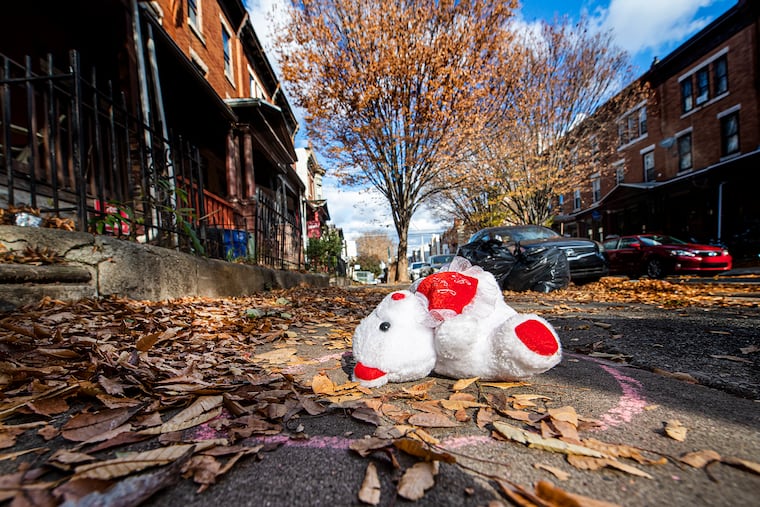Temple University releases the results of its violence reduction report
The Violence Reduction Task Force, formed after Temple student Samuel Collington was killed last year, said the university should launch a dashboard that shows crime trends.

Development of an advisory board, better communication efforts, increased security cameras and walking escorts, and a cleanup and beautification of the campus and surrounding neighborhood are among the recommendations included in a violence reduction task force report released Friday by Temple University, hours before students were set to go on Thanksgiving break.
The group, which the school formed following the slaying of Temple student Samuel Collington near campus last year, also recommended the university launch a data dashboard that shows crime trends around the campus by zip codes and notes outcomes of university efforts.
In addition, it called for Temple to organize and lead a violence reduction summit next spring, bringing together other local universities, crime experts, and city officials to brainstorm solutions.
“The next step is to prioritize the recommendations and begin to move forward, alongside a clear evaluation plan to ensure that we will continue to reflect on what we have done and amend our process, as needed,” the task force said. “Many opportunities lie ahead, and the only wrong course of action is to do nothing.”
The task force led by Jennifer Ibrahim, interim dean of the College of Public Health, includes faculty, students, community members, and parents. The report’s release follows continued incidents of violence around the university’s campus, most recently the gunpoint robbery of 11 Temple students at an off-campus residence. The university’s longtime safety chief Charles Leone resigned last spring amid an uptick in violence near the school and the university brought in Jennifer Griffin, a former Delaware State Police captain, as its vice president for public safety in July.
Lack of communication was cited in the report as a barrier. The group called on the university to share the disposition of incidents after it sends a safety alert to the community, as well as better publicize its campus crime log.
The university, the group said, also should create a tab on its website dedicated to safety, similar to the one created for COVID-19.
“The tab would be used to push out resources, connect to apps, and encourage safe practices on and around campus, including living off campus,” the report said. “The tab could include an overview and basic tips on what it means to go to school on an urban campus and how students, staff, and faculty can take an active role in their safety.”
The campus also should increase the use of security cameras and license plate readers on campus to tighten security and improve prevention, the report said. Griffin recently completed an audit of 1,300 cameras on campus.
More walking escorts are needed, the report said, but given the police officer shortage, “ambassadors” should be called on to fill in. The report did not specify who might qualify as an ambassador.
The task force also looked at practices at other universities. Among the recommendations, the group said Temple should consider duplicating a program at Marquette University, which focuses on repairing broken windows, cleaning trash off streets, and dealing with vacant lots and graffiti. Improving the physical environment in and around campus can help reduce crime, the group said. The university, in addition, should provide technical support to community groups working on violence prevention.
The university also should consider other streams of funding for violence prevention efforts, such as the University of California system’s use of workers’ compensation fees, the task force said. While increasing its own investments, Temple also should pursue state and national funding for violence prevention efforts, as well as grant funding.